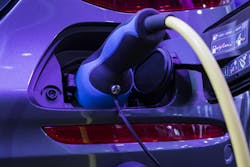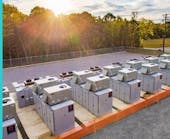DOE Announces $131M to Strengthen America’s Battery Supply Chain and EV Innovation
The U.S. Department of Energy (DOE) has announced more than $131 million for projects to advance research and development (R&D) in electric vehicle (EV) batteries and charging systems and funding for an advanced battery consortium to address critical priorities for the next phase of widescale EV commercialization.
The DOE has announced that 27 projects will receive $71 million to develop innovative and equitable clean mobility options, alleviating supply chain concerns for EV batteries and increasing EV drive range.
The selected projects are funded through DOE’s Vehicle Technologies Office (VTO) in the Office of Energy Efficiency and Renewable Energy and aims to:
- Lower the cost of EV batteries using inexpensive, abundant materials by developing long life-cycle, high-energy density lithium-sulfur batteries;
- Improve the efficiency and convenience of public transportation by developing and demonstrating system-level approaches to equitable mobility access;
- Advance on-board EV charging systems through the research and demonstration of innovative EV charging systems, including bi-directional charging;
- Increase EV drive range by developing sustainable lightweight materials, including door panels and EV battery enclosures.
The United States Advanced Battery Consortium (USABC) of Southfield, Michigan, will receive $60 million for pre-competitive, vehicle-related advanced battery R&D.
The consortium will focus on R&D for EV batteries with enhanced performance; EV batteries using earth-abundant and domestically available battery materials; light-, medium-, and heavy-duty vehicle batteries; and more cost-efficient battery recycling processes.
It will not only accelerate battery R&D relevant and responsive to the requirements of EV manufacturers but also contribute to the domestic battery supply chain and recycling ecosystem essential to meeting the demand for EV batteries.
The consortium will partner with key stakeholders like universities, national laboratories, and manufacturers supplying materials and components to the battery industry.
All applicants for both VTO funding opportunities were asked to include a community benefits plan addressing objectives to ensure that the benefits of a clean transportation system are shared equally.
Securing the domestic battery supply chain and developing innovative solutions to electrify the transportation sector support President Biden’s Investing in America agenda.





